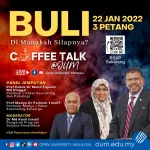By Jahabar Jainul Abideen Shahul Hameed
IPPPC (Introduction, Presentation, Practice, Product, Closure) denotes the progressive stages in Teaching-Learning sessions. This is often seen as a traditional approach in delivering a package of lesson but it is a life-long approach to be attended to. Although new approaches have been introduced, tried out and some being forcefully implemented in institutions, these new approaches do coin back to IPPPC stages of teaching-learning. Every teacher, knowingly or unknowingly, implements these stages in teaching sessions. A particular session could be pitched for 30 or 40 minutes or for 60 or 80-minute double-period or even as a 2 to 3-hour session Implicitly, IPPPC approach is the life-line of a complete T-L session.
A complete session starts at an introductory stage (known as set induction). It has its own purpose and elements of importance. Besides introducing the topic, it creates and sustains interest among learners, reflects and extracts students’ previous knowledge (content or general knowledge) in relation to the new topic, creates space for the students to incorporate the previous knowledge into the on-coming new knowledge, gets them prepared to move on with the lesson and initiates motivation.
Having dwelled into the new topic, the teacher presents the content, explains, elaborates, illustrates, demonstrates, gives examples, observes learner understanding, creates space for teacher-learner interaction and sets a situation to observe if most of the students show signs of having understood the content. S/he may briefly re-elaborate or re-demonstrate, if necessary.
Having a done that, the teacher creates an opportunity for the students to practice what they have understood. The students explore the important issues in the content and perform related activities to explicitly show their understanding. At this stage active student-student interaction occurs. Students enhance and relate the facts to the knowledge of the outside world.
The product stage is task related. Tasks that reaffirms the understanding of the learners, their connectivity to current content knowledge to the knowledge of the world. They complete the task mainly through student-student interaction with minimal guidance from the teacher. At this stage true enhancement of knowledge occurs among the students.
Finally, comes the closure stage but the lesson does not end abruptly. The closure has its own function. At this stage, the content points are reinstated, patch-up points are inserted and the content is reinforced. The needs of the next upcoming session are observed. Closing interaction between teacher and the student is created.
The process of a good session is not bound by time allocation for the stages. Nevertheless, each stage must be logically time-progressive. As an approximated guide, Introduction could be 10-15 % of the total session; Presentation 20%; Practice 25 %; Product 30% and Closure 10-15%. This is not mandatory.
The success of the session is denoted by the achievement of cognitive and social appreciation of the students. They should have acquired knowledge through the content and they too feel the satisfaction of having attended the session. This could be assessed or just observed. Although IPPPC approach is not claimed to be THE BEST, it is certainly an approach that justifies an appropriate lesson process.
* Mr Jahabar is an OUM tutor who currently teaches MPU 3412 (Community Service) and HPGD 2203 (Educational Management) for the Faculty of Social Sciences and Humanities.









